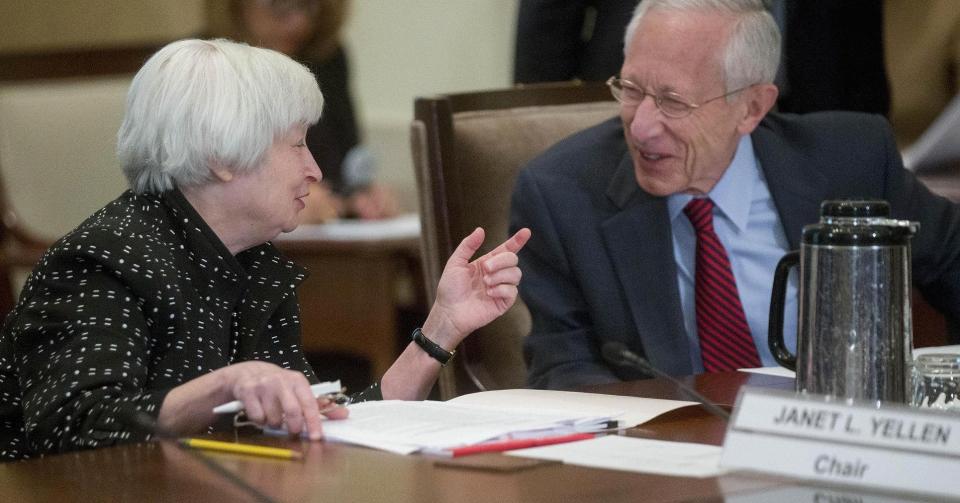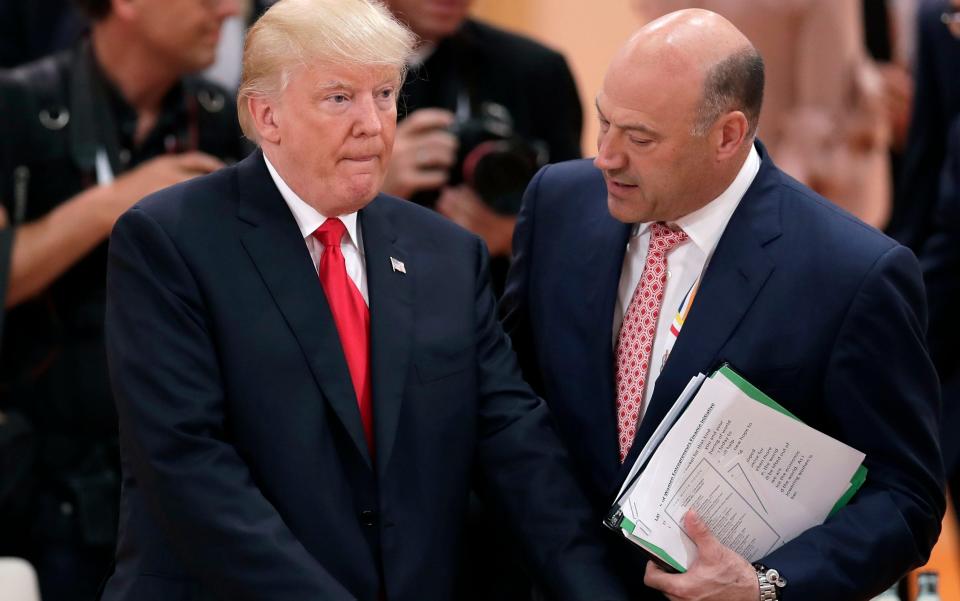Claims and Fed drama — What you need to know in markets on Thursday
After a rough start to the holiday-shortened week, stocks bounced back on Wednesday with each of the major averages closing in the green.
The price of gold was also lower on Wednesday while the U.S. dollar was also a touch weaker, losing notably against the Canadian dollar which rallied after the Bank of Canada raised interest rates.
On the economic front, Thursday will bring us a quieter day than Wednesday, as the weekly report on initial jobless claims is set to be the main headline, with the only potential news here being any read on whether Hurricane Harvey’s impact on the Houston area pushed up filings for unemployment insurance last week.
Investors are Thursday will also of course keep an eye on the Caribbean, where Hurricane Irma was set to brush the northern coast of Puerto Rico overnight and continue its path towards the southern coast of Florida with impacts expected on the U.S. mainland sometime on Saturday.
Fed leadership questions piling up
Coming into 2017, the biggest question for Federal Reserve watchers outside of just what the Fed would do with monetary policy — that is, how aggressive would the central bank be in raising interest rates and would it pare the size of its balance sheet — is what would happen at the top of the Fed.
Fed Chair Janet Yellen’s four-year term expires in February, and its long been expected that President Donald Trump would look to appoint her successor, or nominate her to another term, by the end of the year.
A report late Wednesday from The Wall Street Journal appeared to make her renomination more likely after the Journal said Gary Cohn, Trump’s chief economic advisor, would likely not be nominated to the top Fed job by Trump. The Journal said this was related to Cohn’s comments following August’s violence in Charlottesville, which were critical of Trump’s response to the events.
But aside from who will occupy the top slot at the Fed, a number of other positions at the Fed’s Board of Governors have been and remain open, and vice chair Stanley Fischer’s surprise resignation on Wednesday added yet another opening that needed to be filled by Trump.

Fischer, who as the Journal’s Mike Bird noted supervised the PhD work of a number of prominent central bankers — among them current European Central Bank president Mario Draghi and former Fed Chair Ben Bernanke — was the second-most influential voice at the Fed. He was also a staunch proponent of the Fed’s supervisory actions taken since the financial crisis, which Yellen herself defended in a speech last month at the annual symposium in Jackson Hole, Wyoming.
Yellen’s speech was seen by many economists as a rebuke of the deregulatory stance towards the financial industry Trump has taken, and Fischer told The Financial Times last month, “It took almost 80 years after 1930 to have another financial crisis that could have been of that magnitude. And now after 10 years everybody wants to go back to a status quo before the great financial crisis. And I find that really extremely dangerous and extremely short-sighted.”
Certainly, there is a clear conflict between high-ranking Fed officials and the current president.
What’s notable, however, is that these conflicts appear to be about regulation and the Fed’s role as a supervisor of the financial system than they are about monetary policy.
Trump himself has said that he likes low interest rates and reportedly told Yellen that he considers he considers her a low-interest rate person like himself. And most analyst commentary around new leadership at the Fed has indeed acknowledged that Yellen and Trump’s views on actual interest rate policy may be aligned.
But that this will stop heavy turnover from taking place at the Mariner-Eccles building seems unlikely.

In a note following Fischer’s resignation, Barclays economist Michael Gapen wrote that, “Our baseline view is one of significant turnover at the Federal Reserve Board over the coming months… We do not expect Fed Chair Yellen to serve another term, and today’s resignation from Fischer increases the number of vacancies at the Board of Governors, giving the president and his administration greater scope to shape the monetary policy body in their image.”
Of course, this note was published before the Journal’s report that Cohn is not likely to be the next Fed Chair.
The situation, then, is all a bit muddled and, for what is mostly academic organization that is explicitly tasked with operating outside of the partisan vortex that predominates in Washington, D.C., it’s getting quite a bit political as well.
In the coming weeks, there will certainly be more to come on this.
—
Myles Udland is a writer at Yahoo Finance. Follow him on Twitter @MylesUdland
Read more from Myles here:

